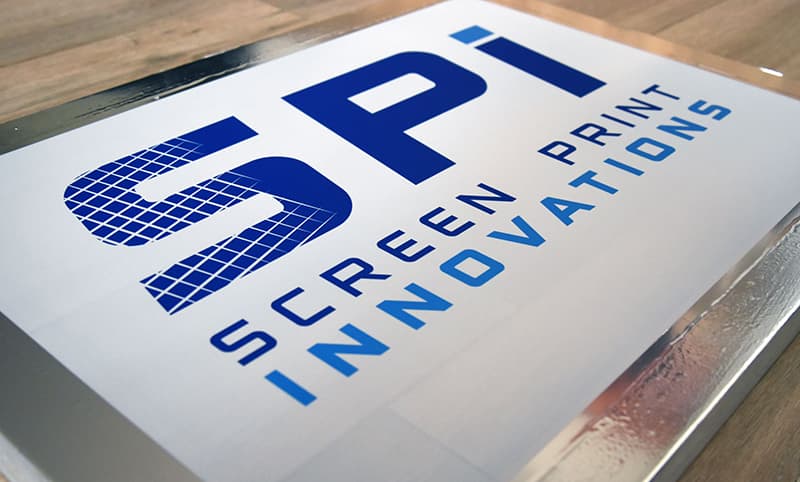Keynote speakers to unveil groundbreaking advancements in screen printing for global brands, automotive innovation, as well as printed and flexible electronics
Screen Print Innovations (SPI) – the leading global event dedicated to screen printing – will be held at Messe Essen, Germany, from 3-5 June 2025. From flexible electronics to high-security printing, the three-day event organised by the European Specialist Printing Manufacturers Association (ESMA) will showcase the latest breakthroughs and connect industry leaders shaping the future. As the world’s only dedicated screen printing event, SPI 2025 is where researchers, manufacturers, and brands collaborate on the next wave of technological advancements.
More than 70 exhibitors and thousands of visitors are expected at Messe Essen. Print system developers, ink and other consumables producers, integrators, distributors, value-added resellers, print manufacturers, and product owners will meet for the first time at SPI.
ESMA CEO Peter Buttiens says, “Although seasoned, screen and pad printing keep evolving and advancing in terms of precision, automation, and quality, applications across different market segments drive continual innovation. We build on the experience of our members and know-how accumulated in over thirty years of our service to the industry. Together we have recognised the need for a format which will present the latest developments and discuss the power of expanding, adapting, or combining for specific market requirements.”
Future of Screen Printing
An impressive lineup of keynote speakers will present groundbreaking advancements at the SPI Innovation Theatre, highlighting the transformative potential of screen printing across multiple industries.
Sebastian Gepp, Head of Development for Printed Electronics at Kundisch GmbH & Co. KG, will discuss how screen printing enables transparent conductive patterns essential for next generation 5G and 6G antennas. His sessions will highlight how technology enhances connectivity and supports future telecommunications advancements.
FM Siebdruck Werbung Design GmbH Managing Director Jan Rother will explore the ScreenX raster process, an innovative technique that integrates logos, characters, and symbols into raster dots. This makes security printing more tamper-resistant and difficult to replicate, benefitting security-critical applications.
Dr.-Ing. Eric Klemp, Head of Hydrogen and Additive Manufacturing at Whitecell Eisenhuth GmbH & Co. KG, will discuss how screen printing accelerates the production of fuel cells and electrolysers. His session will focus on its role in manufacturing bipolar plates with high conductivity and low permeability, advancing sustainable energy solutions.
Former Nike manufacturing and innovation strategist Chris Vacca will break down the winning formula for technology companies looking to work with major brands. Through real-world case studies, Vacca will demonstrate how strategic thinking, vendor collaboration, and innovation in sustainability, automation, and digitisation can provide a competitive edge – enabling attendees to gain actionable strategies to win new business and grow existing partnerships with top-tier brands.
As industries push the boundaries of design and functionality, formable substrates are transforming the landscape of automotive lighting, printed electronics, and decorative surfaces. Menno Bos, Sales Manager International at Kimoto Ltd. Europe, will explore the latest advancements in high-efficiency diffusion films and pre-cured hardcoat PC technologies. With 25 years of experience in functional coated films and a background in industrial automation engineering, Bos will highlight how these cutting-edge materials enhance durability, aesthetics, and performance across industries.
Attendees will gain insights into breakthrough applications, from flexible electronics to next-generation automotive surfaces, and discover new ways to stay ahead in a rapidly evolving market.
Dr. Philip Renners, Vice President R&D at Witte Technology GmbH, will discuss printed electronics for biomedical applications at SPI 2025. Printed electronics offer clear advantages over traditional designs of electronic components in medical devices. Lightweight, flexible, robust, and cost-efficient electronic components can be produced through additive manufacturing using printing machines, which are particularly suitable for use in wearables and medical technology applications. Production on specialised roll-to-roll printing machines enables high-volume manufacturing.
Exhibitor Showcase at SPI 2025
Beyond expert-led sessions, SPI 2025’s exhibitor showcase will feature leading companies unveiling the latest advancements in screen printing for automation, electronics, and industrial manufacturing.
Sun Chemical will showcase inks for human-machine interfaces, combining functional and graphic inks for enhanced visual impact and reliability. Grünig and SignTronic will be presenting a modular concept for automated screen production.
KIWO will introduce new screen-printable protective films for safeguarding sensitive surfaces, while INO will display a fully automatic modular machine for high-precision printing on sensitive foils.
Proell will feature chemical products and adhesion promoters for in-mold decoration and industrial applications. CST will unveil a new machinery series with high resolutions and laser power.
Among other exhibitors, TECHNIGRAF will showcase an upgraded combination dryer featuring UV and IR radiation, THIEME will present a fully automatic screen printing system for various industrial sectors, and Lüscher Technologies will unveil a groundbreaking innovation exclusively at SPI 2025.
Technology of Choice for Industrial, High-tech Applications
Screen printing is no longer just a printing method – it’s an innovation driver for industries worldwide. Screen printing remains the technology of choice for most industrial and high-tech applications. Automotive, printed electronics, Internet of Things (IoT), healthcare, luxury packaging, and textiles are examples of how screen printing has established itself as a reliable manufacturing solution.
Although mature, the process keeps on evolving and advancing in terms of precision, automation, and quality. At the same time, it keeps its promise of resource efficiency and adaptability both in terms of volume and stability requirements.
Opening Hours: (3-4 June 2025) 10 am – 6 pm, (5 June 2025) 10 am – 4 pm.
